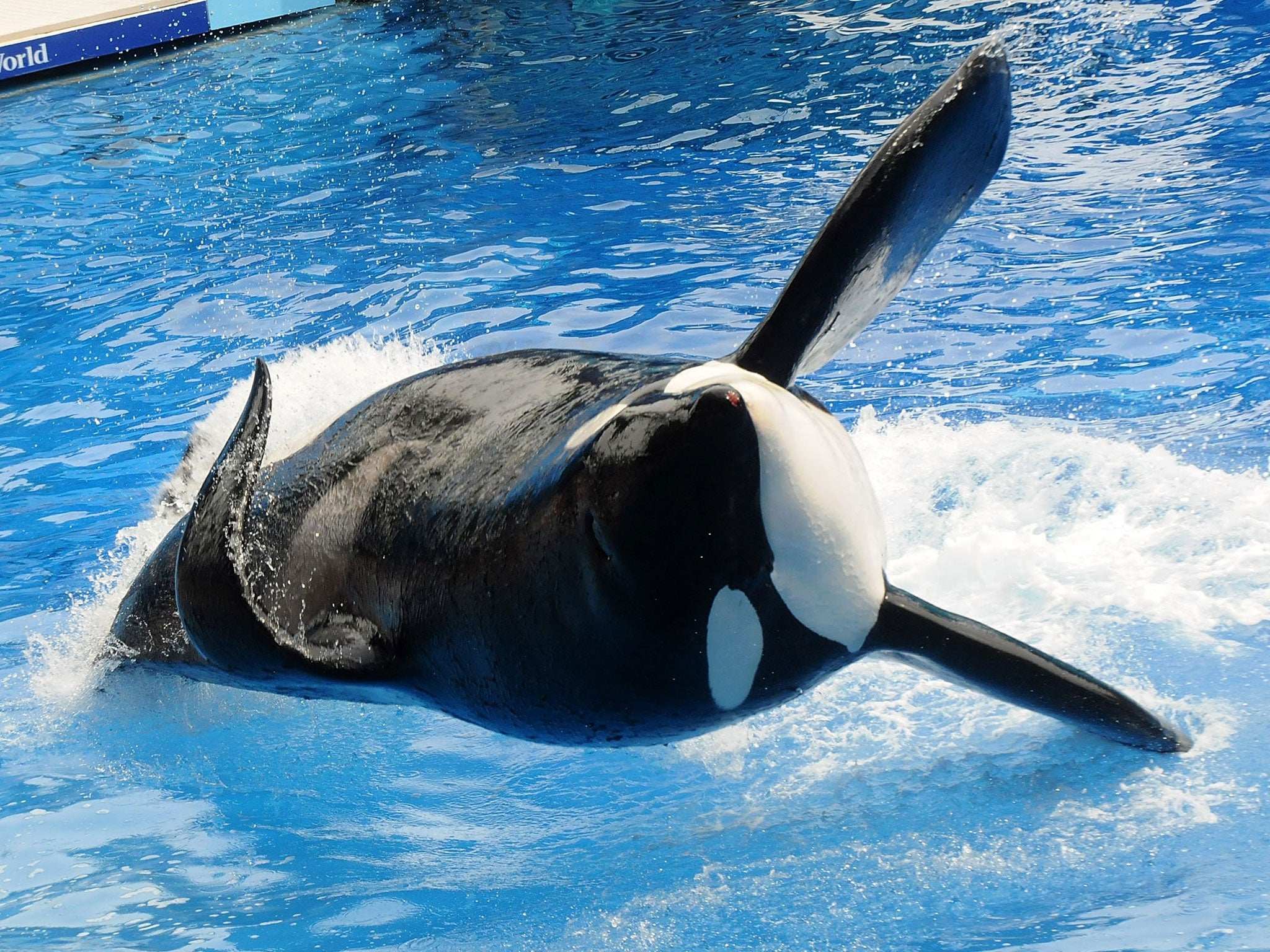SeaWorld visitor number decline thought to be linked to 'Blackfish' documentary
Since the release of the film, 1.2 million have signed a petition urging the state of California to ban killer whale shows

The number of people visiting SeaWorld in the US has dropped by almost 15 per cent in the first quarter of this year, as controversy continues to surround the water parks.
Animal rights campaigners have linked the downward trend to the release of Blackfish, the documentary which relayed a version of how SeaWorld trained Dawn Brancheau was pulled under the water by a bull orca called Tilikum, as well as criticising the treatment of the killer whales themselves.
The film has sparked international public outrage, as it depicts the whales as intelligent creatures with complex social structures, that have been taken from their families and are kept calm in small pools with psychotropic drugs.
During SeaWorld shows, orcas balance human trainers on their snouts, rotate in the water to music and imitate human behaviour by waving their flippers and tails.
President of SeaWorld San Diego told the Guardian that the park “believe[s] strongly there is an inspiration benefit to people seeing [killer whales] in our park."
He said the argument that dolphins, whales and porpoises should not be kept captive is "based on emotion and a propaganda film," rather that "credible, peer-reviewed science."
A mother and baby killer whale swim together in SeaWorld San Diego.
Read more: SeaWorld attracts fewer visitors after Blackfish
SeaWorld San Diego killer whale shows could end
"Displays in which killer whales are forced to perform demeaning tricks are anything but inspirational," said Will Travers, head of the Born Free Foundation.
Over 2,100 dolphins and whales are being held captive at 343 facilities in 63 countries across the world, according to the organisation, with campaigners continuing to oppose the parks that keep cetaceans in captivity.
Wildlife campaigners say that cetaceans kept in captivity tend to develop health problems and suffer stress-related illnesses.
"This is not necessarily the fault of the keepers who work with these animals and are certainly not out to mistreat them," Lori Marino, of Emory University, Atlanta, told the Guardian.
"These parks provide good veterinary care. The problem is that cetaceans just cannot take captivity. The worst affected is the killer whale, while the beluga whale also does poorly. Bottlenose dolphins probably do best but they still die early of stress-related diseases despite being protected from predators and having food given to them every day."
"Marine animals evolved to travel to get food,“ adds Marino. ”It is a challenge to hunt for food and they want to be challenged that way. So it is no favour to them to throw them dead fish," she added.
Since the release of Blackfish, 1.2 million people have since signed a petition urging California to ban killer whale shows in the state.
Earlier this month, a bill legalising the ban was put on hold for the next 12 months. but campaigners are hope it will be enacted next year.
Subscribe to Independent Premium to bookmark this article
Want to bookmark your favourite articles and stories to read or reference later? Start your Independent Premium subscription today.

Join our commenting forum
Join thought-provoking conversations, follow other Independent readers and see their replies